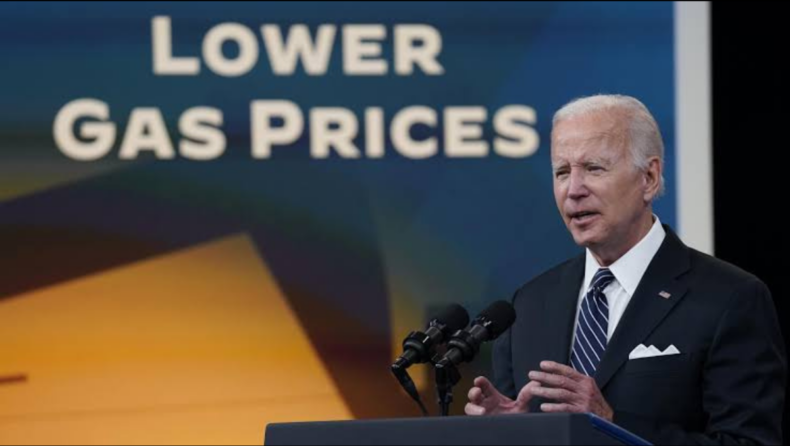To combat record gasoline prices, US President Joe Biden considered a three-month suspension of the federal gasoline tax on Wednesday.
President Joe Biden asked Congress on Wednesday to suspend the federal gas tax temporarily to slow the rapid rise in gas prices. While a suspension may provide some immediate relief, experts warn that it may also keep demand elevated, exacerbating the tight supply.
Consumers are being impacted by increased prices everywhere, causing the administration headaches ahead of the November midterm elections.
However, the most visible strain on consumer wallets is the rise in fuel prices — signs at corner gas stations across the country announce the unfortunate news, the prevailing price per gallon. Earlier this month, the national average surpassed $5 per gallon for the first time.
It has become an Achilles’ heel for the administration, according to OPIS Global’s Tom Kloza, “despite having nothing to do with any policies [Biden’s] had since he took office.”
Biden’s proposal requests that Congress halt the federal tax on gasoline and diesel fuel for 3 months, coinciding with the summer driving season. The federal tax on regular gasoline is 18 cents per gallon and diesel is 24 cents per gallon.
The president is also urging states to suspend gas taxes or find another way to help consumers.
The White House said in a statement that the suspension would “give Americans a little extra room to breathe as they deal with the effects of Vladimir Putin’s war in Ukraine.”
“If this bill is signed and enacted — if it becomes effective,” mentioned the head of petroleum analysis at GasBuddy, Patrick De Haan. However, he added that the scope to which any assistance is felt will be determined by the stability of wholesale prices. Any potential legislation’s wording and timing will have an impact.
De Haan gave New York as an instance. However, the state suspended its gas tax at a moment when wholesale fuel costs were rising. Consumers didn’t notice much of a difference at the pump because the tax increase was mitigated by higher wholesale prices.
Nonetheless, he stated that because this federal value was implemented today, it would “greatly increase the downside,” as gasoline futures have previously pulled back after soaring above $4.
It’s uncertain whether Biden has the legislation’s support in Congress. The claim comes at a critical juncture in the run-up to the midterm elections in November.
The president has repeatedly chastised gas and oil companies for what he alleges are profit-driven policies at the expense of consumers. He urged refiners to increase output last week. The sector, for its component, claims that the White House has unwelcoming policies and that they can’t increase output though if they wished to, citing labour shortages as an example.
More than a quarter of the cost of a gallon of gasoline is determined by the fundamental cost of oil, which is determined on a global scale and has recently risen above $100 per barrel.
According to Jason Furman, a Harvard professor of economic policy and former chair of President Barack Obama’s Council of Economic Advisers, a suspended sentence would have little effect on consumers while costing oil companies billions of dollars.
“When refineries are already at capacity, the additional demand that the gas tax holiday will unleash will almost entirely manifest itself in the form of higher prices for producers rather than savings for consumers,” he said, before adding, “I don’t think any expert thinks this is even remotely good idea.”
Jeff Currie, global head of commodities research at Goldman Sachs, agreed, saying a gas tax holiday would ultimately lead to higher consumer demand.
The cure for high prices is high prices, according to a well-known phenomenon in commodity markets. Cutting prices is a band-aid solution that will not confront fundamental market imbalances.
Earlier this month, the nationwide rate for a tank of gasoline surpassed $5 for the first time. Prices have since fallen slightly, with the national average per gallon standing at $4.955 on Wednesday.
This is up 36 cents in the last month and $1.88 more than the previous year. Since 1993, the federal gas tax has been 18.4 cents per gallon.













